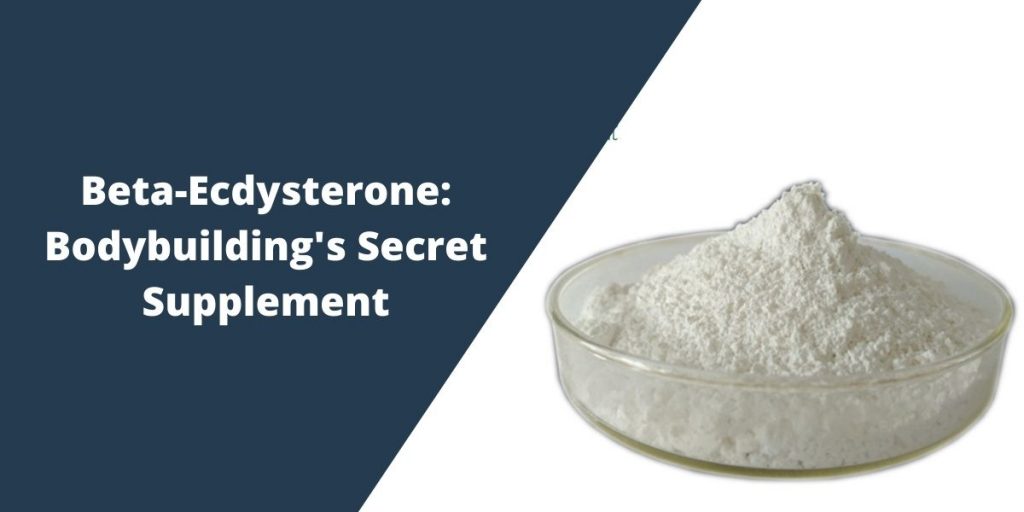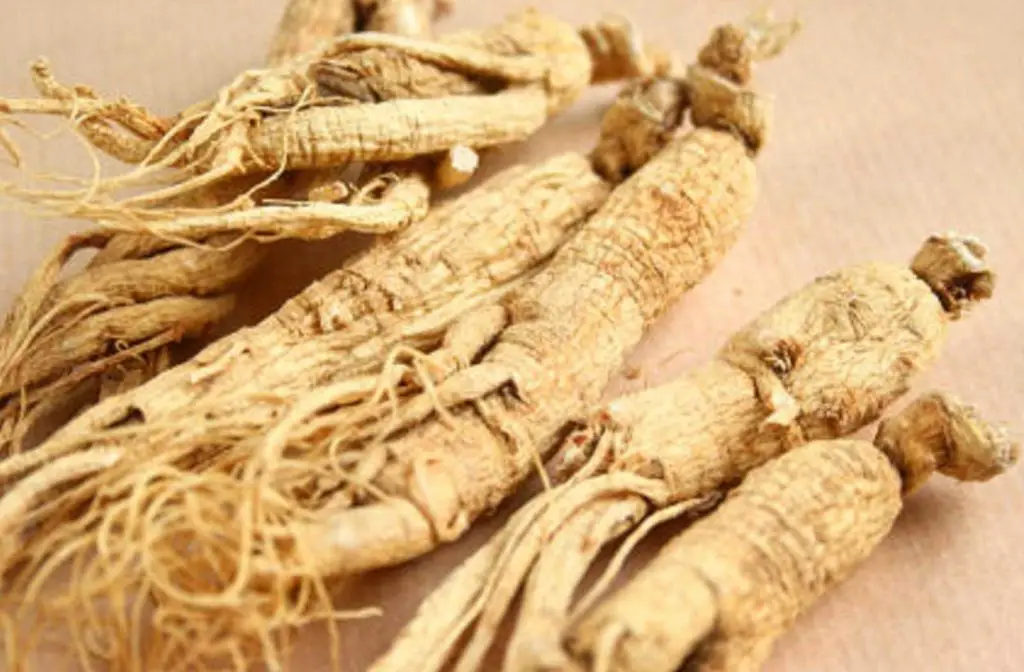Beta-Ecdysterone, alternatively called 20-hydroxyecdysone, is a naturally occurring steroid found in insects, some aquatic animals, and plants. The substance falls under the family of Ecdysteroids (or zooecdysteroids), hormones that control moulting and reproduction of arthropods. More than 300 different Ecdysteroids have been isolated from plant and animal sources since 1966, roughly. They are normal components of the diets of many animals.
Ecdysteroids have been touted as a “universal medicine” in medical literature, as they have been demonstrated to improve nervous function, stimulate hepatic functions, improve heart and lung function, improve renal function, and exhibit both adaptogenic and antioxidant properties while being non-toxic to vertebrates. With this all being said, their precise mode(s) of action in mammals is still being investigated and the therapeutic effects of specific Ecdysteroids, including Beta-Ecdysterone, are poorly understood.
Some evidence suggests that Beta-Ecdysterone may be effective in terms of increasing muscle mass and improving athletic performance in humans (though most clinical trials related to Beta-Ecydysterone have been conducted on animals to date). As such, the substance is widely utilized by body builders who aim to build muscle and/or lean body tissue. Ecdysteroids have similar structures to the male hormone testosterone. However, there is insufficient evidence to indicate that Beta-Ecdysterone’s essential function works like testosterone in humans. Indeed, while it is often touted as a natural, safe alternative to anabolic steroids, under the premise that it is a powerful growth promoter with no negative hormonal consequences, more clinical research is needed to evaluate the true effectiveness of the substance.
A widely-acknowledged hypothesis in the scientific community is that Beta-Ecdysterone promotes protein synthesis, which enhances lean body mass when accompanied by resistance training. Again, the evidence is lacking and inconsistent. However, there is some promising research to indicate that Beta-Ecdysterone has other therapeutic potential as well, including anti-osteoporotic and anti-osteoarthritic and anti-aging properties.
Beta-Ecdysterone Benefits
Muscular/Performance Enhancement
Clinical research regarding Beta-Ecdysterone’s efficacy in enhancing performance is relatively inconsistent. A clinical study published by the Journal of the International Society of Sports Nutrition explored the potential ergogenic value of three dietary supplements: methoxyisoflavone, beta-ecdysterone, and sulfo-polysaccharide.
In this double-blind study, 45 resistance-trained males ingested supplements containing either a placebo, 800 mg of methoxyisoflavone, 200 mg of Beta-Ecdysterone, or 1000 mg of sulfo-polysaccharide. At 0, 4, and 8 weeks, subjects donated blood samples and completed comprehensive body composition, muscular strength, muscular endurance, and anaerobic capacity analyses. The results indicated no significant differences from pre- to post-supplementation and/or training in active testosterone, free testosterone, or cortisol. To sum, the physicians concluded that ingestion of Beta-Ecdysterone or the other supplements did not influence body composition or training adaptations in resistance-trained males.
In another study published by Molecular Nutrition & Food Research, researchers explored whether Beta-Ecdysterone had the capacity to stimulate protein synthesis and thus enhance physical performance in male rats. In this study, it was found that Beta-Ecdysterone increased muscle fiber size, as well as serum IGF-1, while 17β-estradiol and corticosterone decreased. Researchers also observed that, in differentiated C2C12 myoblastoma cells, treatment with Beta-Ecdysterone, dihydrotestosterone, IGF-1 and also E2 resulted in hypertrophy. The results indicated new possible therapeutic perspectives for the treatment of muscle injuries and sarcopenia, or age-related muscle tissue loss.
Finally, a study published by Regulatory Toxicology explored the hypothesis that Ecdysteroids are mediated by estrogen receptor (ER) binding. In this study – one of the few on humans – researchers conducted a 10-week intervention study of strength training of young men (median age 46). Analyses of blood and urine samples were administered during the study to evaluate the performance enhancement effect. In this study, significantly higher increases in muscle mass were observed in participants who were dosed with Beta-Ecdysterone as opposed to placebo. No increase in biomarkers for liver or kidney toxicity was observed.
Some bodybuilders consider Beta-Ecdysterone as “Natural Dianabol”.
Anti-Aging Properties
Aside from its possible capacity for performance enhancement in mammals, Beta-Ecdysterone is loosely suspected to have favorable anti-aging properties. In a study conducted by Natural Product Research and Development, Beta-Ecdysterone administration to fruit bats was demonstrated to enhance serum SOD and GSH-Px activity while decreasing MDA, thus possibly increasing the life span of the animals. However, far more research is needed in this area to draw any firm conclusions.
Osteoporosis and Osteoarthritis
A study conducted by Molecular Medicine Reports explored the possibility that Beta-Ecdysterone may have the capacity to inhibit osteoblast proliferation and differentiation and thus induce apoptosis. In this study, osteoblasts were induced from bone marrow mesenchymal stem cells isolated from C57BL/6 mice. Cell viability and apoptosis of osteoblasts were measured with Cell Counting Kit-8 and flow cytometry analysis. The expression of related genes and proteins was measured by using reverse transcription quantitative polymerase chain reaction and western blot analysis.
Findings indicated that Beta-Ecdysterone induced apoptosis and inhibited autophagy of osteoblasts, which was indiated by unregulated B-cell lymphone 2 (Bcl-2)-associated X protein/Bcl-2 ratio and the activation of mTOR, a major regulator of growth in animals. The researchers concluded that Beta-Ecdysterone may be a potential candidate drug for the treatment of osteoporosis through inducing osteoblast autophagic activity by inactivating mTOR (Hu et al 2018).
Further research indicates that Beta-Ecdysterone may indeed be effective in inhibiting the underlying mechanisms behind osteoarthritis and/or osteoporosis. For example, in a study published by the American Journal of Translational Research, researchers investigated the therapeutic effects of Beta-Ecdysterone on osteoarthritis and the mechanisms underlying these functions. The results indicated that Beta-Ecdysterone may alleviate osteoarthritis by activating autophagy in chondrocytes, the only cells found in healthy cartilage, through regulating the PI3K/AKT/mTOR signal transduction pathway, which is abnormally activated in many tumorigenesis processes.
Beta-Ecdysterone Side Effects
In the words of Barbie Broschart, RD and nutritional counselor, “Beta-Ecdysterone has as many fans as it does skeptics”. With that being said, Beta-Ecdysterone does not have any adverse side effects and is often used as a safe alternative to steroids because it doesn’t have any unfavorable hormonal impact. Clinical evidence does not validate Beta-Ecdysterone’s ergogenic value to the fullest extent, but on the other hand there are no known side effects and Ecdysteroids in general have very low toxicity. Finally, they have neither androgenic nor oestrogenic (or antioestrogenic) effects, unlike anabolic steroids.
With that all being said, not enough is known about the use of Ecdysterone during pregnancy. To be safe, it is recommended that individuals who are pregnant or breast-feeding avoid use.
Not convinced? You can also check out Epicatechin for another Bodybuilding secret!
Dosage
It is unclear which dose is most effective in humans, though some recommend between 80-120 mg per day. One study found 60 mg daily to be ineffective, though safe over a period of 8 weeks. Long-term safety concerns and a lack of long-term trials may make short-term use the most sensible option.
References:
Ambrosio G., Botrè F., Goebel C., Isenmann E., Joseph J.F. Mazzarino M., et al (2019) Ecdysteroids as non-conventional anabolic agent: performance enhancement by ecdysterone supplementation in humans. Archives of Toxicology, 93(2).
Botrè F., Diel P., Hengevoss J., Parr M.K. & G. Wolber (2015) Ecdysteroids: a novel class of anabolic agents? Biol Sport 32(2): 169-173.
Diel P., Fritzemeier K.H., Haupt O., Hengevoss J., Parr M.K., Piechotta M, et al (2014) Estrogen receptor beta is involved in skeletal muscle hypertrophy induced by the phytoecdysteroid ecdysterone. Mol Nutr Food Res, 58(9): 1861-72.
Didry-Barca B., Dioh W., Dilda P.J., Guobout L., Lafont R., Latil M., et al (2020) 20-Hydroxyecdysone activates the protective arm of the renin angiotensin system via Mas receptor. Cold Spring Harbor Laboratory.
Dinan L. & R. Lafont (2003) Practical uses for ecdysteroids in mammals including humans: an update. Journal of Insect Science, 3(7).
Dinan L. & R. Lafont (2013) Effects and applications of arthropod steroid hormones (ecdysteroids) in mammals. Journal of Endocrinology, 13(1): 1-8.
Freedman (n.d.) Beta-ecdysterone. Men’s Journal.
Jibiao W., Ling Z. & S. Zaiyun (2001) Experimental study on the ant-aging effect of beta-ecdysterone. Natural Product Research and Development, 13(5): 28-29.
Campbell B.I. Taylor L.W., Wilborn C.D., et al. (2006) Effects of Methoxyisoflavone, Ecdysterone, and Sulfo-Polysaccharide Supplementation on Training Adaptations in Resistance-Trained Males. J Int Soc Sports Nutr 3, 19.
Mo Y., Tang Y., Xin D., Xu C., Yue Z. & L. Zeng (2020). β-ecdysterone alleviates osteoarthritis by activating autophagy in chondrocytes through regulating PI3K/AKT/mTOR signal pathway. American Journal of Translational Research, 12(11): 7174–7186.
Hu Z., Li G., Tang Y., Xin D., Xu C., Yue Z. et al (2018). Effect of β‑ecdysterone on glucocorticoid‑induced apoptosis and autophagy in osteoblasts. Molecular Medicine Reports, 17: 158-164.





